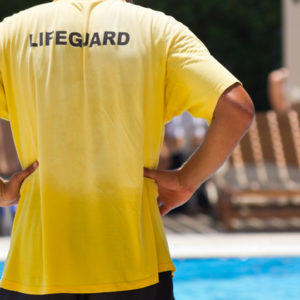New Jersey Public Recreational Bathing Code Amendments
New rules and regulations updating the New Jersey State Sanitary Code, Chapter IX – Public Recreational Bathing, N.J.A.C. 8:26 became effective on January 16, 2018. Community Association swimming pools, wading pools and hot tubs/spas are considered public recreational bathing facilities as long as they are used by three or more dwelling units and as such, are subject to the Public Recreational Bathing Code. If a community association restricts use of its pool to owners and invited guests only, it is considered a “specially exempt facility” under the code.
Although it is not recommended, as a specially exempt facility, a community association could choose not to comply with the first aid personnel and lifeguard requirements of the Bathing Code so long as it does not have a recreational pool apparatus that may present an increased safety risk such as a diving board, or water slide but it must comply with all other Bathing Code regulations. A community association choosing not to comply with the first aid personnel and lifeguard requirements of the Bathing Code might find it difficult to obtain insurance for its facilities. Thus, such a decision would have to first be carefully considered and analyzed with its insurance agent and its membership. The exemption provision is not new but what is new is the requirement that an exempt community association which chooses not to comply must inform the local health authority of its decision.
- Blog (25)
